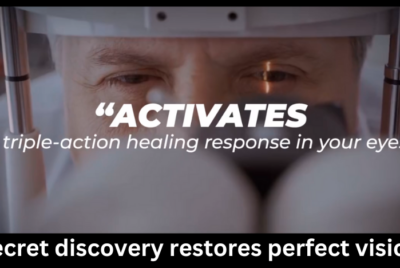Terrified Of Cataract Surgery
The fear of being terrified of cataract surgery is natural. Cataracts are a common eye condition that affects millions of people worldwide. They occur when the natural lens of the eye becomes cloudy, causing blurred vision, sensitivity to light, and difficulty seeing at night. Although cataracts can be managed initially with prescription glasses or contact lenses, cataract surgery becomes inevitable when the condition starts significantly impacting daily life. In this article, I will provide helpful suggestions and tips for minimizing the terrified of cataract surgery.
Understanding The Procedure
Cataract surgery is a highly effective and safe procedure that aims to remove the cloudy lens and replace it with an artificial intraocular lens (IOL). It is typically an outpatient procedure, meaning you can return home on the same day. Over the years, advancements in surgical techniques have made cataract surgery more precise, resulting in improved visual outcomes and quicker recovery times.
Overcoming Fear And Anxiety
Why Are You Terrified Of Cataract Surgery?
Fear of cataract surgery can stem from the dread of medical procedures, misinformation, or the fear of potential complications.
It’s natural to feel apprehensive about undergoing any surgical procedure, and cataract surgery is no exception. Many individuals experience fear and anxiety due to concerns about pain, complications, or the unknown. However, it’s important to remember that cataract surgery is one of the most commonly performed surgeries worldwide, with a high success rate. The procedure is usually painless, thanks to the use of local anesthesia, and most patients experience significant visual improvement afterward.
The Success Rate Of Cataract Surgery
With a success rate of over 95%, cataract surgery is one of the most successful surgical procedures.
Choosing A Skilled Surgeon
Selecting a skilled and experienced surgeon is crucial for a successful cataract surgery outcome. Take the time to research and seek recommendations from trusted sources such as your optometrist or ophthalmologist. Look for a surgeon who specializes in cataract surgery and has a good reputation. Reading patient reviews and considering the surgeon’s qualifications and credentials can provide valuable insights.
Preparing For Surgery
Before your cataract surgery, your surgeon will conduct a comprehensive eye examination to assess your eye health and determine the best course of action. They will explain the preparation steps, which may include stopping certain medications, fasting before the surgery, and arranging for transportation to and from the surgical center. It’s important to follow these instructions carefully to ensure a smooth and successful procedure.
Anesthesia Options
During cataract surgery, different anesthesia options are available to ensure your comfort. Local anesthesia is commonly used, which involves numbing the eye area while you remain awake. This approach eliminates the risks associated with general anesthesia and allows for a faster recovery. Your surgeon will discuss the anesthesia method best suited to your needs and address any concerns you may have about pain or discomfort.
During The Surgery
Cataract surgery is performed in a sterile operating room under controlled conditions. Your surgeon will create a tiny incision in the cornea, through which they will remove the cloudy lens using specialized tools. The lens is then replaced with an artificial intraocular lens (IOL) that will restore clear vision. The entire procedure is usually completed within 15 to 30 minutes per eye, with minimal discomfort.
Recovery Process
After cataract surgery, you will be given detailed instructions on postoperative care. This may include using prescribed eye drops, wearing an eye shield or protective glasses, and avoiding strenuous activities for a few days. It’s normal to experience some mild discomfort, redness, or blurry vision initially, but these symptoms should gradually improve as your eye heals. Most patients notice improved vision within a few days to weeks.
Vision Enhancement Options
In addition to cataract removal, some individuals may have the opportunity to further enhance their vision during the surgery. Premium intraocular lens (IOL) options, such as multifocal or toric lenses, can correct additional refractive errors like astigmatism or presbyopia. These advanced IOLs can potentially reduce the need for glasses or contact lenses after the procedure. Your surgeon can discuss the suitability of these options based on your specific vision needs.
Real-Life Experiences
Many people who have undergone cataract surgery report a significant improvement in their quality of life. They often express regret for waiting too long to address their cataracts and highlight the positive impact the surgery had on their daily activities, such as driving, reading, or enjoying hobbies. Real-life stories and testimonials from individuals who have experienced successful outcomes can help alleviate fears and provide reassurance.
Long-Term Benefits
Cataract surgery offers long-term benefits, including improved vision, enhanced quality of life, and the ability to enjoy clearer and brighter surroundings. By removing the clouded lens, cataract surgery restores clarity, sharpness, and color vision, allowing you to see the world in all its beauty. The procedure can also reduce the risk of falls and accidents associated with poor vision, improving overall safety and independence.
Driving After Cataract Surgery
The timeline for resuming driving after cataract surgery may vary depending on individual factors and the specific guidelines provided by your surgeon. Most patients can resume driving within a few days to a week after their surgery. However, it’s essential to follow your surgeon’s instructions and consider the following factors:
Visual Acuity
Your ability to see clearly and judge distances is crucial for safe driving. Wait until your vision has stabilized and meets the legal requirements for driving in your area. Your surgeon will inform you when your vision is suitable for driving.
Recovery Progress
It takes time for your eye to heal completely after cataract surgery. You may experience temporary blurriness or fluctuations in vision during the initial days or weeks. Once your vision has significantly improved and stabilized, driving can be considered.
Comfort And Confidence
Feeling comfortable and confident behind the wheel is essential for safe driving. If you still experience discomfort, glare, or difficulty focusing on the road, it’s best to wait until these issues resolve before driving again.
Medication And Follow-Up
Follow your surgeon’s postoperative medication regimen and attend all scheduled follow-up appointments. Your surgeon will evaluate your progress and determine when it’s safe for you to resume driving.
Remember that driving with impaired vision can pose risks to yourself and others on the road. It’s always better to prioritize safety and wait until you feel fully ready and have received clearance from your eye care professional before getting back behind the wheel.
Benefits And Risks Of Cataract Surgery
The Benefits
The main benefit of cataract surgery is improved vision. This can lead to a better quality of life, improved safety, and greater independence.
Cataract surgery restores vision affected by clouded lenses, improving clarity, color perception, and night vision. It reduces dependence on corrective eyewear, enhancing the overall quality of life. It also decreases the risk of falls or accidents due to poor sight, increases the ability to perform daily tasks, boosts confidence, and enables individuals to enjoy activities such as reading or driving again. Lastly, it can prevent cataract-related complications like glaucoma.
The Potential Risks
While generally safe, cataract surgery can entail risks like infection, bleeding, and inflammation. Vision might be affected by retinal detachment, glaucoma, or secondary cataract. Patients may experience visual distortions, loss of vision, or a feeling of discomfort like something is in the eye. In rare cases, surgery can worsen existing eye conditions or systemic diseases. Discussing these risks with your doctor to make informed decisions is crucial.
Like any surgery, there are risks involved, such as infection and retinal detachment. However, these are rare occurrences and are usually manageable with prompt medical attention.
Terrified Of Cataract Surgery – Conclusion
If you find yourself terrified of cataract surgery, it’s important to remember that the procedure is safe, highly effective, and life-changing for many individuals. By understanding the process, choosing a skilled surgeon, and addressing your concerns, you can overcome your fears and take the necessary steps to regain clear vision and improve your quality of life. Don’t hesitate to consult with an eye care professional who can guide you through the entire journey.
Please note that this article should not replace professional medical advice. Consult a healthcare professional for an accurate diagnosis and tailored treatment plan.
Frequently Asked Questions (FAQs)
Is cataract surgery painful?
Cataract surgery is typically painless due to the use of local anesthesia. You may experience some mild discomfort or pressure during the procedure, but it is generally well-tolerated.
How long does it take to recover from cataract surgery?
The recovery period varies for each individual, but most patients notice significant visual improvement within a few days to weeks after the surgery.
Will I need glasses after cataract surgery?
Depending on your specific vision needs and the type of intraocular lens (IOL) used you may still require glasses for certain activities such as reading or driving. However, many patients experience reduced dependence on glasses after surgery.
Are there any risks or complications associated with cataract surgery?
While cataract surgery is considered safe, like any surgical procedure, there are risks involved. These risks are minimal and can be discussed with your surgeon before the surgery.
Can cataracts return after surgery?
Once a cataract is removed, it does not grow back. However, in some cases, a condition called posterior capsular opacification (PCO) may occur, causing blurry vision. PCO can be easily treated with a laser procedure called YAG capsulotomy.




